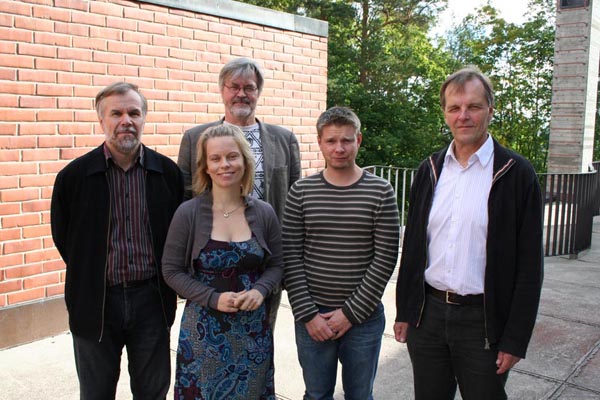 |
Issue 31 (3/2010)
|
|||
FSD Bulletin is the electronic newsletter of the Finnish Social Science Data Archive. The Bulletin provides information and news related to the data archive and social science research.
|
Cross-national Research on EducationThe Finnish Institute for Educational Research (FIER) has long experience in producing high-quality research on education. Based at the University of Jyväskylä, the institute specializes in comparative assessment of learning outcomes, educational cultures and systems, the most well-know example being the PISA study.
Forty years of comparative assessThe Finnish Institute for Educational Research was established in 1968. It is responsible for the Finnish part of the PISA study (Programme for International Student Assessment), as well as for other OECD-funded study programmes such as the Program for the International Assessment of Adult Competencies (PIACC) and the Assessment of Higher Education Learning Outcomes (AHELO). The institute has been a member of the International Association for the Evaluation of Educational Achievement (IEA) ever since its establishment. Being a IEA member has led to the institute conducting also the International Civic and Citizenship Education Study (ICCS), Progress in International Reading Literacy Study (PIRLS) and the Trends in International Mathematics and Science Study (TIMSS) in Finland. Increase in evaluation studiesPekka Kupari is the most practiced researcher working with cross-national comparative assessments, having been involved with such studies ever since the 1970s. He is currently involved in all cross-national assessments conducted by the institute. Kupari says that the number of evaluation studies has increased rapidly over the past ten years. This has led to a situation where the institute is preparing, carrying out or reporting
several assessment studies at the same time. In 2010, for instance, the institute reported on
the 2009 PISA findings, prepared the 2012 PISA study, and pretested measurements for both
TIMS and PIRLS. All this work was executed by a small group of ten researchers. Senior Researcher Sari
Sulkunen emphasizes that this would be impossible without very experienced staff. With such
expertise, there is always the risk that someone leaves, taking their know-how with them.
Cross-national assessment processCross-national assessments are all collected in waves, generally every 3 - 5 years. If the
cycle is frequent, there may be problems with non-response and refusals to participate. To
ensure comparability, all research projects have an international consortium which lays down the rules regarding the schedules, instructions and quality criteria which the national level operators must abide by. All cross-national studies proceed in a similar manner. First the assignments and measurements are planned and pre-tested. At this stage the national operators have a say in methods and measurements.
National cultures influence resultsThe researchers working at the Finnish Institute for Educational Research stress that
measurements used in cross-national assessment studies are always compromises. This should
be taken into account when considering their validity. Cultural environment always affects the results.
Even with strict guidelines, schedules and quality requirements, researchers working at the
institute find international cooperation rewarding. Both Kupari and Sulkunen feel it is educational to write joint papers.
More information: Finnish Institute for Educational Research
|
 Researchers working at the institute are not too pleased about the enthusiasm produced by
the comparative assessment results.
Researchers working at the institute are not too pleased about the enthusiasm produced by
the comparative assessment results.